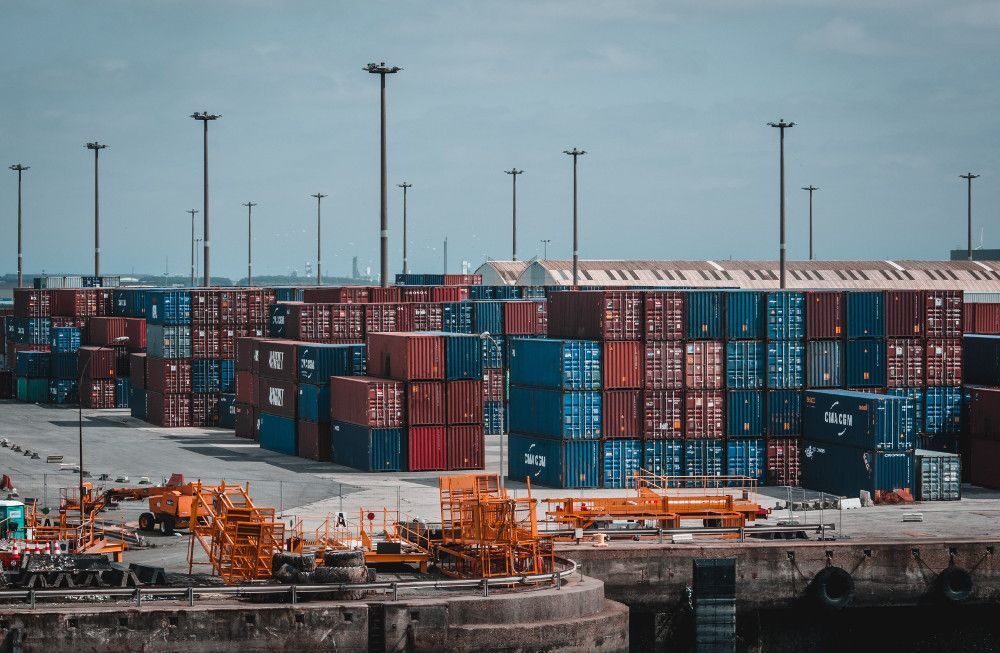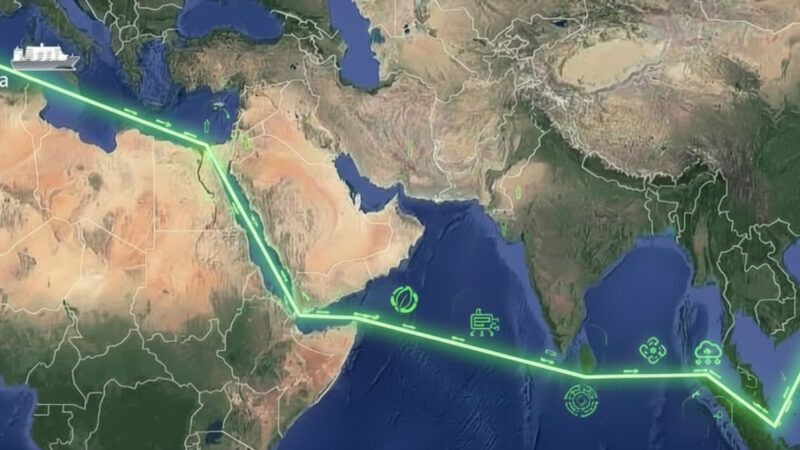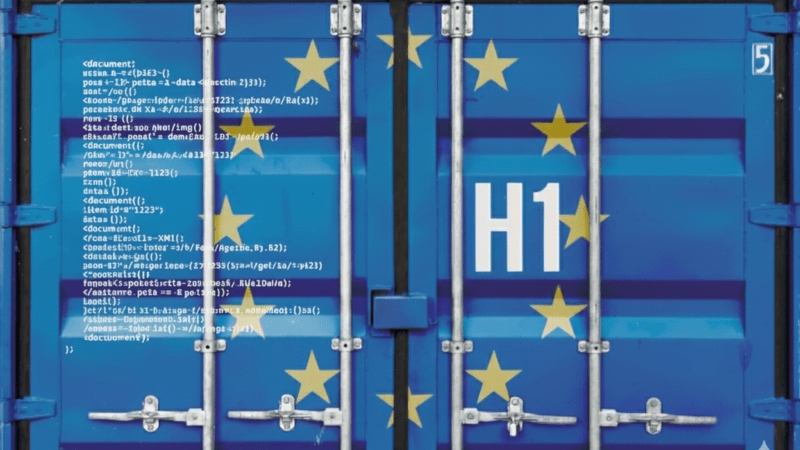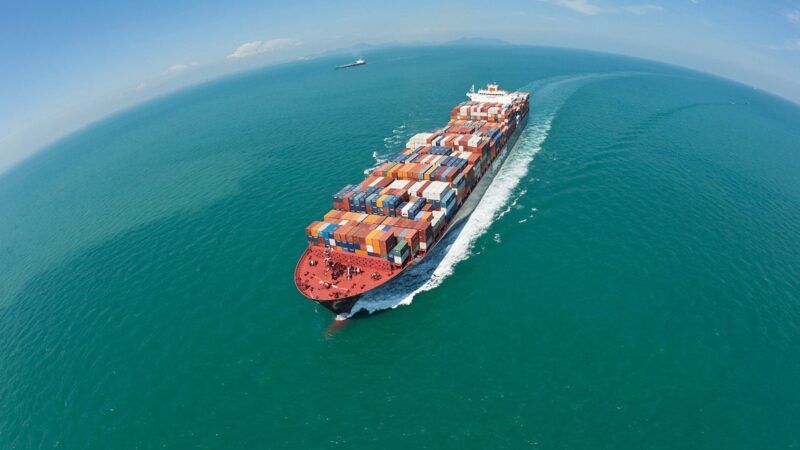 New Incoterms should introduce changes that reflect the increase in intermodality [Image by Samuel Wölfl]
New Incoterms should introduce changes that reflect the increase in intermodality [Image by Samuel Wölfl]
How will the Incoterms 2020 rules adapt to new trends in international trade?
The International Chamber of Commerce (ICC) is expected to publish its new Incoterms 2020 rules within the next few months. These trade terms are used in international trade deals regarding delivery of goods and establish the seller's and buyer's responsibilities. Remigi Palmés, an expert in international trade, analyses the possible changes that may be included in the Incoterms 2020 rules for PierNext.

Remigi Palmés teaches International trade and Business management. He specialises in Incoterms, international transport, SCM and international payment methods.
 New Incoterms should introduce changes that reflect the increase in intermodality [Image by Samuel Wölfl]
New Incoterms should introduce changes that reflect the increase in intermodality [Image by Samuel Wölfl]
In 1936, the International Chamber of Commerce published the first Incoterms rules, which in more recent editions have been revised every ten years (1980, 1990, 2000 and 2010) to simplify them and adapt them to the changing landscape and trends in international trade.
Following this logic, to address the current trade panorama, the new Incoterms rules will have to tackle a series of new situations that have arisen in international sales, including:
- New individuals and professional that have joined the trade sector and see the market as global. Specifically, the boom in e-commerce, led by companies like Amazon and Alibaba in B2C and B2B trade.
- The new smart contracts used in international sales, supported by Blockchain technology, which are making international transactions safer and, therefore, changing which Incoterms are used.
- The increase in intermodal transport and, along with it, the use of multipurpose Incoterms that apply to various modes of transport instead of those that apply exclusively to sea transport.
- The increase of services in international trade. Previously, the Incoterms referred only to the sale of products, not services, so it would make sense to introduce 'InServterms'. In advanced countries, these services can make up more than 70% of the GDP.
- The sale of digitalised products, for example reproduction licences for 3D printers.
Plus, to understand the new proposals to change the Incoterms rules, we have to take into account two other issues:
- General misuse of some Incoterms rules. For example, the use of sea Incoterms like FOB, CFR and CIF for containers, and the use of EXW even though the seller loads the lorry and not the buyer or their representative, the carrier, as EXW dictates.
- China and Australia joining the committee to draft the new Incoterms 2020 rules.
Speculation online regarding the changes that we will see in the Incoterms 2020 rules points to elimination of EXW and FAS, applying FOB and CIF to containers, and adding a new Incoterms rule CNI (Cost and Insurance), among others. Below we give you our take on these possible changes.
The new Incoterms should respond to the changes that are taking place in international sales processes such as the emergence of e-commerce and smart contracts, increase in intermodality and the proliferation of services in international trade
Eliminating EXW
The EXW Incoterms rule is a good candidate to disappear as it is used improperly and could easily be replaced by other, more suitable Incoterms. Specifically, some of the issues detected in its use include:
- According to EXW, the importer must load the goods at the exporter's facilities (seller), but in practice it is often the seller who does so.
- This creates legal problems in many countries, under workplace health and safety laws, because, while the lorry should be loaded by the buyer, they are not company staff and can't handle goods on the company's premises.
- This contravenes the CMR Convention, which says goods must be loaded by the dispatcher, while a sales contract with an EXW clause establishes that the cargo must be loaded by the buyer or their representative, the carrier.
- It doesn't make sense for the importer to have to handle export customs clearance, as EXW establishes. There is a trend in customs regulations to prohibit sellers from being the exporters if the EXW Incoterms rule is used (including the Union Customs Code - UCC).
In practice, EXW can easily be replaced with FCA, which leads us to believe it is highly possible that it will disappear in future editions of Incoterms.
Swapping FAS for FCA docks
FAS is a sea Incoterms rule used mainly for bulk cargo or general cargo. Approximately 80% of all tonnage transported by sea is moved in full bulk vessels or general cargo ships by renting out space in the hold. This is why the sea Incoterms rules, which were the first to be created in 1936, exist and are so important in sea transport. However, FAS could easily be replaced with FCA docks, as the multi-purpose Incoterms rules (like FCA) can apply to sea transport. There is precedent for replacing a sea Incoterms rule for a multi-purpose one, as DES was replaced with DAT in the 2010 revision. My guess, then, is that FAS will be eliminated and replaced with FCA.
![Incoterms FOB, CFR and CIF for containers are often used incorrectly. [Image by Chanka]](https://piernext.portdebarcelona.cat/wp-content/uploads/2018/12/business-cargo-container-commerce-906494-1024x640.jpg)
Possibility, although very improbable, of using FOB and CIF for containers or splitting FCA into two new Incoterms rules
Although there is some speculation on this, I think it is improbable that FOB, CFR and CIF will be officially sanctioned for use with containers. China joining the 2020 Incoterms drafting committee could influence these changes, as (mis)use of these Incoterms rules for container operations is very common in that country.
Nevertheless, this concession would be difficult to explain and go against the doctrine the CCI has applied so far, which could be seen as a reward for misusing the Incoterms rules. Furthermore, there have been many signs from the CCI that FOB, CFR and CIP should not be misused for container traffic:
- For example, the Incoterms 2010 rules explicitly advise against using these terms for containers.
- The change in how the Incoterms are classified, from the 2000 system that broke them down into families (Fs, Cs and Ds), to one based on modes of transport, on one hand, and sea terms, on the other, in 2010.
- Common sense also tells us that a sale using a container (ITU) involves both land transport (train and/or lorry) and sea transport, not breakbulk, and we should, therefore, use Incoterms rules that apply to lorries, trains and ships. This can only be done with a multi-purpose Incoterms rule.
To partially resolve this misuse, it would make the most sense to split the Incoterms rule FCA, clearly specifying that there is a designated FCA for containers. It would be an educational way to incentivise companies to use this Incoterms rule correctly.
Rumors point to changes such as the elimination of the Incoterm EXW, replacement of FAS by an FCA pier or the unlikely possibility of using FOB and CIF for containers or splitting the FCA into two new Incoterms.
Will a new Incoterms rule CNI (Cost and Insurance) be added?
It has been posited that this new Incoterms rule could be added to the C family (those that put cost at the destination and risk at the origin). These are often used incorrectly, too, as they are designed for the sale of goods in transit and that is only possible for sea transport. Adding a new CNI Incoterms rule would round out the range of options but I question this rule including the buyer paying carriage in bulk or general cargo import operations (normally used in this type of operation).
This new CNI term could also be used to control export customs and insurance from the destination, but not carriage. In this case, we wouldn't use it for speculation but for delivery at origin and the seller removing it from stock in transit.
I personally doubt the ICC will add this term in this version, as there isn't much demand for it.
Eliminating DDP and creating DTP (Delivered at Terminal Paid) and DPP (Delivered at Place Paid)
With regard to customs, the CCI is tending towards having each company pay their own (meaning the exporter pays export customs duties and the importer, import customs duties). The Incoterms rule DDP and its variants don't meet these conditions. It doesn't make much sense for the exporter to have to pay import customs duties and taxes. We have to consider the following points:
- Payment of all taxes, including tariffs, interior taxes (such as VAT) and other specific duties, like special taxes.
- There are laws that prohibit a foreign company from paying part of the national customs-clearance taxes.
- The seller must pay the taxes and include them on the invoice, but the seller can't deduct these taxes, like they can with VAT.
Nevertheless, these Incoterms rules are of interest to e-commerce and global trade between end-consumers (individuals), especially DPP, as prices for end consumers always include all taxes.
These are some clues as to what the new Incoterms 2020 rules may include. The actual changes won't be revealed until the CCI publishes the new rules, which will go into force on 1 January 2020.





